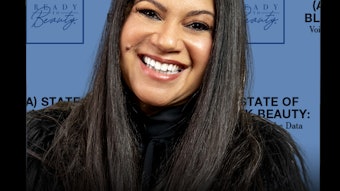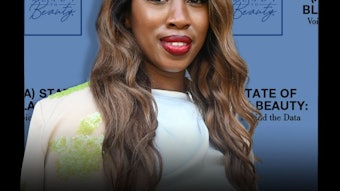Editor's note: This is an edited version of an article that originally ran in the February 2015 issue of Skin Inc. magazine. All rights reserved.
In his now-famous TED Talk, author Simon Sinek became known for his simple, yet powerful model that leaders and business owners around the globe now use: “Start with why.”
Uncovering why you do what you do will help you determine your vision and create a solid foundation to build and market your business.
Setting the Foundation
What inspired you in the first place? Leaders who tap into the passion behind why they created their business are more influential, command greater loyalty and are more profitable than others.
Determining your “why” also will help you create your company’s vision. This vision will become your guide, impacting everything from your brand image to your social media marketing.
Not to be confused with business goals, a vision is a clear, laser-focused picture of what you want to do, where you want to be and why. There are a several questions you can ask yourself to determine your vision statement.
- Why did I start my business? And what was the motivating factor, aside from making money?
- Who do I want to serve? Why?
- What type of resource do I want to be for my consumers?
- Where do I want the business to eventually land?
- What three-to-five values are essential to my brand?
With these answers on hand, describe your business as you envision it. This may be different from its current state. Now, distill everything into one sentence. Does this statement motivate you? Is it something you can easily tell to others and get them excited about it?
Take Disney’s vision: “To make people happy; or Ikea’s: “To create a better everyday life for the many people.” These vision statements shape the company’s marketing efforts and their communication in social networks.
Find Your Marketing Sweet Spot
How can your vision inspire marketing efforts that compel potential consumers to take action? The marketing sweet spot is where your expertise and passion intersects with your consumer’s wants, interests and desires.
Say for example that your ideal consumer is Carrie from Sex in the City. We know Carrie is a trendy writer who likes couture fashion—appearance is important to her. She also is a smoker, spends a lot of time with her girlfriends, lives in a major metropolitan area and walks a lot—in heels. Based on this information, you can bet she may be interested in information about foot care and pedicures, a blog post about attaining glamorous skin before a night on the town, or perhaps a downloadable guide with quick tips for city dwellers on how to refresh skin. A series of magazine-quality images of trending makeup looks paired with couture fashions also might grab her attention.
Knowing this level of detail about consumers can help identify types of marketing that will encourage her to purchase or inspire her to share it with her friends.
Keeping in mind your vision, talk to current and prospective consumers about what their top skin concerns are, what solutions they are looking for, what media or social networks they most use, their passions, and how they spend their time. You might also peruse relevant forums to see what your target audience is discussing and which questions they’re asking.
Setting Brand Standards
To communicate your vision, be intentional about your brand image. Decide on color scheme, fonts, imagery and messaging style, and use them without exception on all online and printed marketing materials to create a cohesive brand identity. There should be no question as to the look or feel of communication with consumers and prospects.
Setting a solid foundation based on your “why” will get your marketing started on the right foot with new consumers and help you build stronger customer loyalty.
Beth Cochran is the founder of Wired PR, a public relations and content marketing firm, and www.successlabr.com, an online source for entrepreneurs to achieve greatness.










